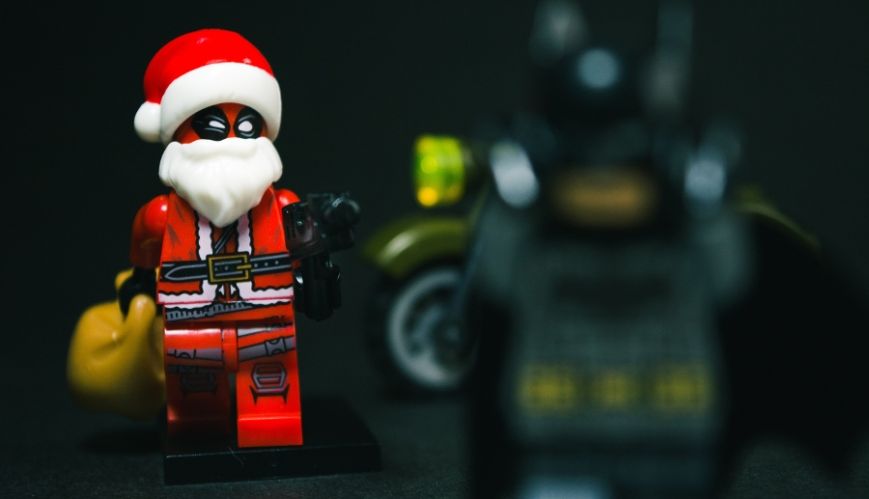Santa's sinister side

Santa's sinister side
19 December 2018
Photo: Esteban Lopez
My father was Santa Claus.
I didn’t realise this until, one evening when I was about eight years old, he and my mother went out one evening “to visit friends”.
Less than an hour later, I answered the door to a tall, portly gentleman, dressed in a red robe, and with a flowing white beard.
His laughing green eyes gave it away – this was not Father Christmas, but mine.
The costume was property of the County Hospital, where he worked and by virtue of being the only man on the staff, the festive duty fell to him each year: dispensing talc and soap to the women and aftershave to the men.
And then, years after, my future husband was Santa Claus. On Christmas Eve, he donned the red suit and stood in front of his mother, who was suffering from advanced Alzheimer’s disease.
She recognised him immediately, however. I don’t know how, but I suspect that it was the same thing again – the eyes.
He had kind, brown eyes and an expression of mischief unique to himself. Having had the great privilege of knowing and loving two Santas, I am well-placed to write a critique of the jolly fellow.
His image is everywhere at this time of year and children are giddy with the excitement of meeting him. He has become the great focus of Christmas, the kindly, all-good fulfiller of wishes.
If you ask Santa for something, then he will not refuse, because he is good. I can remember what it felt like to believe in this mythical figure.
It was lovely and it was magical, and there is certainly a place for that in the life of every child.
But he was not always the ubiquitous figure that he has become, and I think that he has changed into something much more sinister than many of us realise.
It isn’t that once a year we positively encourage a complete stranger to enter our homes during the night, help himself to our food, before leaving without being seen.
Surprisingly enough, that still seems to be an acceptable part of the Christmas narrative.
No, it’s more that he has displaced the person who really gives Christmas its meaning. Gentle Jesus, meek and mild is all very well, but he doesn’t give presents, or grant wishes.
He is just a nice wee adjunct to the main event, which is a frenzy of greed.
Far from being the benevolent man of my childhood, Santa is now some sort of god of consumerism, granting wishes and handing over whatever goods your little ones may desire.
How can Jesus hope to compare with that? His birth was most unlike that of lesser kings. It had none of the costly trappings of rank or display because from the very first, he was gently telling us that none of that matters.
If it was of any real consequence, his would have been the richest of surroundings. Yet, when the wise men came from the East, they brought expensive gifts.
Why would a child born in such lowly circumstances require such costly and seemingly impractical gifts?
They may have been mere men, but they were wise, after all, and their gifts were a recognition of who this child was.
Gold was for his kingship; frankincense for his deity; and myrrh, commonly used as an embalming oil, recognised his mortality as one who was God, yet fully human.
These gifts, now the background noise of “the Christmas story”, are actually a very significant part of it because they foreshadowed what this infant would be to mankind.
Last year, on the weekend before Christmas, I travelled into the city centre, which was a boiling frenzy of consumerism.
People rushed about, beguiled by adverts promising the perfect Christmas Day.
But it is not the presents we will open on Christmas Day, brought by the jolly man in the red suit which make Christmas perfect, however.
That perfection was attained 2000 years ago, and began when a little child was offered gifts representing what he already possessed: deity, kingship, and the keys to death.
Those gifts already in his possession are now offered to us to share. We may benefit from his kingship and from his Godness, and we may accept his offer of freedom from the bonds of death.
There will never be anything on Santa’s sleigh to compare with that.
Catriona Murray blogs at posttenebrasluxweb.com